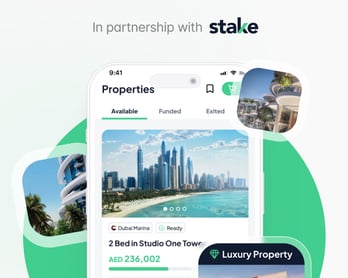With all the activity happening in the cryptoverse, it's hard to keep track of everything that’s going on. With the rise of DeFi and NFTs, it's important to note that most of the activity that is happening has been largely on the Ethereum blockchain.
Ethereum is referred to as a Layer 1 blockchain, which allows for other applications to be built on top of it (such as applications for DeFi and NFTs). While there are many other Layer 1 protocols competing for users, today’s post will be about Polkadot, a "blockchain of blockchains." Cere Network, whose token offerings will be hosted on Republic’s platform starting April 8th, is Polkadot-aligned, meaning that it will be compatible with the framework.
For those new to crypto and blockchain, check out this primer on the 10 key terms you need to know. If you're already familiar, let's get some names and organizations defined. You will inevitably come across these terms when doing your own research on Polkadot.
Polkadot is the name of blockchain (like Ethereum or Bitcoin)
DOT is the native currency of the Polkadot blockchain
Substrate is the modular framework that allows you to build blockchains compatible with Polkadot
Parity Technologies is the name of the company that launched Polkadot and Substrate. It is important to note that Gavin Wood, one of the cofounders of Ethereum, is the Founder and Lead Developer at Parity.
Web3 Foundation is a Foundation that promotes development of Polkadot ecosystem projects through grants and resources
Polkadot has been making headlines recently, not only because of the rise of the value of their native token, DOTs, but also because of the upcoming launch of their parachains.
Parachains and interoperability
One of Polkadot’s core innovations is the concept of the "relay chain," a central element that links multiple parallel chains (aka parachains), creating a multi-chain system. The relay chain can be considered the heart of Polkadot, and is responsible for the network’s shared security, consensus and cross-chain interoperability.
Parachains can be thought of as their own individual blockchains that can have their own tokens and specific functions. However, they rely on the relay chain for shared network security. This allows them to offload heavyweight features, enabling them to focus on unique and specific strengths.
Because all parachains communicate with the relay chain, they are all inherently connected and thus interoperable. There are even parachains that are planned to function as “Public Utility” parachains, and be responsible for cross-chain bridges that allow the Polkadot ecosystem to communicate with external networks like Ethereum and Bitcoin. Polkadot will only support a limited number of parachains per relay chain, currently estimated to be about 100.
Parachain slots
This all is very exciting—interoperability is something that the Republic team believes is essential for blockchain to move into mainstream adoption. It is important to note that currently, there are no live parachains and thus Polkadot is still a “skeleton chain”. Parachains are currently being tested on Polkadot’s 2 testnets, Kusama and Rococo, with rollouts scheduled over the next few months.
As there will only be a finite amount of parachains that are allowed to connect to any given relay chain, there will be an auction process for relay chain access. Projects will bid to “lease” a parachain slot for a period of time (between 6 and 24 months, like an apartment lease). In order for a project to lease a parachain slot, they will need to bid the amount of DOTs they are willing to lock up in order to lease the parachain. The project receives their DOTs back once the lease is over.
Crowd loans
The planned mechanism by which most projects will gather the necessary amount of DOTs will be through a crowd-loan process. This is very similar to a fundraising process, where the project will reach out to its community and ask for their support in rounding up DOTs. In order to incentivize their crowd loan participants, the company will likely be giving their own platform tokens in exchange for DOTs. These mechanisms are currently being tested on Rococo and Kusama, with live parachain offerings coming online in the coming months. It is currently unclear what the final price to win a parachain auction will be.
The takeaway
Polkadot is an exciting blockchain, with a vibrant ecosystem of projects brewing
The relay chain and parachain model enables interoperability, which is crucial for mainstream adoption of blockchain tech
Parachain slot auctions are coming soon—it will be very interesting to watch the mechanics unfold
Crowd loans are a great way to get a project's community involved and to democratize the participation of everyone in blockchain technology
Any information provided herein does not constitute investment advice or investment recommendation nor does it constitute an offer to buy or sell or a solicitation of an offer to buy or sell cryptocurrencies, digital assets, tokens, securities, shares or units in any of the investment funds or other financial instruments described. In addition, the information provided herein does not contain any offer, recommendation or incitement to conclude any contracts for financial services or to conclude any other kind of contract. In particular, this information should not be used as a substitute for suitable investment and product-related advice. Any investment decision should be made in consultation with your own advisers.
This notice should not be construed as an offering of securities or as investment advice or any recommendation as to an investment or other strategy by Republic Advisory Services or any of its affiliates. All information provided in this web page is impersonal and not tailored to the needs of any person, entity or group of persons. Republic Advisory Services is being compensated $225,000 USD (half in cash and half in CERE tokens) of the total token supply issued by Cerebellum Network, Inc., for services provided in connection with this web page and other advisory services. Neither Republic Advisory Services nor any of its affiliates has independently verified any of the information provided in this web page or makes any assurances as to the completeness, accuracy or reliability of any such information. This web page may contain external links to third-party content (content hosted on sites unaffiliated with Republic Advisory Services), and neither Republic Advisory Services nor any of its affiliates makes any representations whatsoever regarding any third-party content/sites that may be accessible directly or indirectly from this newsletter. Linking to any such third-party sites in no way implies or constitutes an endorsement or affiliation of any kind between Republic Advisory Services (or any of its affiliates) and any third-party. Republic Crypto LLC d/b/a Republic Advisory Services is a subsidiary within a family of companies owned by OpenDeal Inc. (together sometimes referred to as “Republic”). Republic and its affiliates do not provide tax, accounting or legal advice — all recipients are advised to consult with their own advisers.
Polkadot network explainer



 Oops! We couldn’t find any results...
Oops! We couldn’t find any results...







